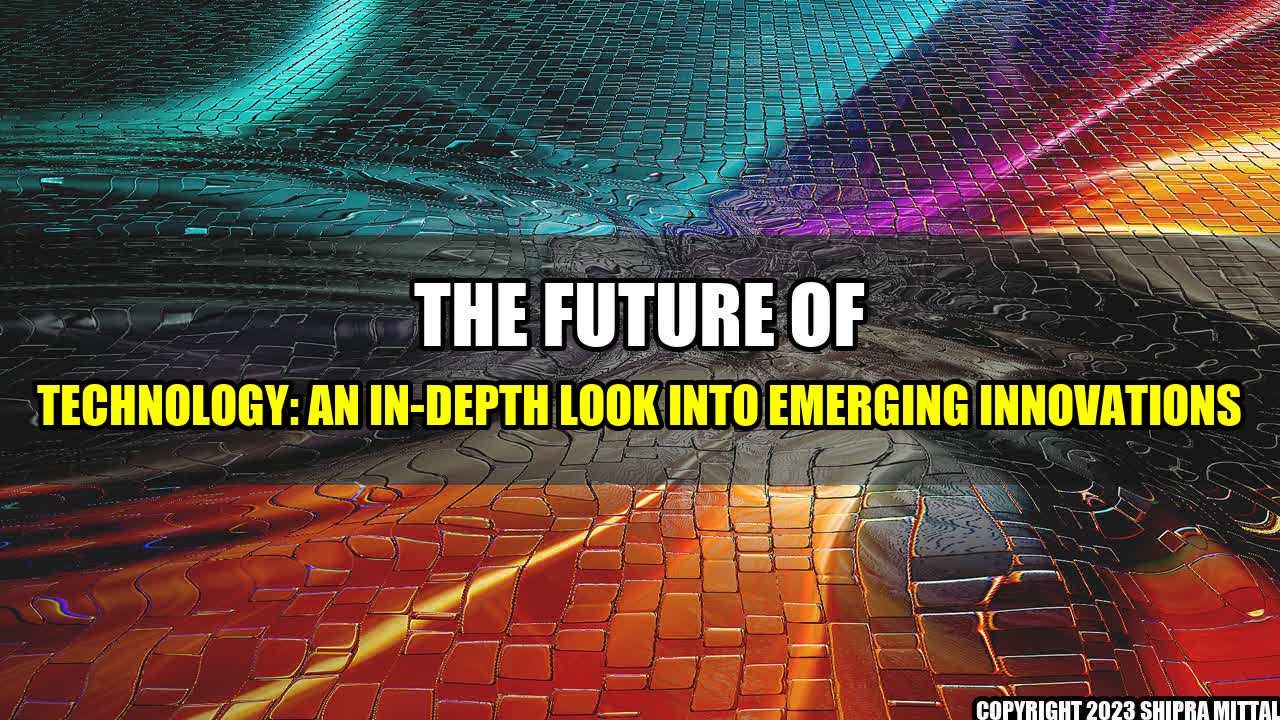Our Story
It's 2035. John wakes up to his alarm clock, but instead of hitting snooze, he puts on his virtual reality headset to meditate on a secluded beach while his smart home adjusts the lighting and temperature to mimic the sun rising. As he gets ready for work, his autonomous car picks him up and he uses his voice-activated AI assistant to complete his daily tasks. He arrives at his office, which is situated in a skyscraper controlled by a blockchain system, and works alongside his robotic coworkers.
This may sound like a sci-fi movie, but it's not far from reality. The pace of technological advancements is accelerating, and the impact of innovations such as AI, virtual and augmented reality, blockchain, self-driving cars, IoT, and robotics will be significant. In this research article, we will take a closer look at these emerging technologies and their potential applications.
Real-Life Examples
Let's start with AI. Companies such as Google, Amazon, and Microsoft are investing heavily in machine learning and natural language processing. AI assistants like Siri and Alexa are becoming ubiquitous, but AI is also being utilized in industries such as healthcare (e.g., predictive diagnosis), finance (e.g., fraud detection and portfolio optimization), and manufacturing (e.g., predictive maintenance and quality control).
Virtual and augmented reality are also gaining momentum. VR headsets like Oculus Rift and HTC Vive are popular for gaming and entertainment, but they also have applications in education, training, and therapy. AR is being used for marketing (e.g., IKEA's Place app), navigation (e.g., Google Maps), and even fashion (e.g., AR mirrors that let you try on clothes virtually).
Blockchain is another buzzword that is making waves in various industries. Companies like IBM and Walmart are using blockchain to enhance supply chain management and track products from farm to table. Blockchain is also being used for secure and transparent voting systems, decentralized finance, and tokenization of assets.
The IoT is all about interconnected devices and smart homes. Smart thermostats, security cameras, and locks are just the tip of the iceberg. The IoT has practical applications in agriculture (e.g., precision farming), energy (e.g., smart grids), and transportation (e.g., intelligent traffic management).
The self-driving car is poised to revolutionize the way we commute. Companies like Tesla, Google's Waymo, and Uber are leading the way in autonomous vehicle technology. Self-driving cars will not only make our lives easier, but they will also reduce accidents and traffic congestion.
Finally, robotics is a field that is advancing rapidly. Robots are no longer limited to factories and assembly lines. They are being used in healthcare (e.g., surgical robots and exoskeletons), agriculture (e.g., crop monitoring and harvesting), and even space exploration (e.g., NASA's Mars rovers).
Conclusion
As we have seen, the technological landscape is transforming at an unprecedented pace. While these innovations present exciting opportunities for progress and efficiency, they also raise questions about privacy, security, and ethics. It is crucial that we approach these technologies with caution and responsibility.
- We must prioritize user privacy and security in the development and implementation of these technologies.
- We must also ensure that these technologies are accessible to all, regardless of socioeconomic status or geography.
- We must continuously assess the ethical implications of these technologies and implement safeguards to prevent discrimination and exploitation.
The future holds incredible promise, but it is up to us to shape it responsibly. Let's embrace innovation while keeping a watchful eye on its impact on society.
